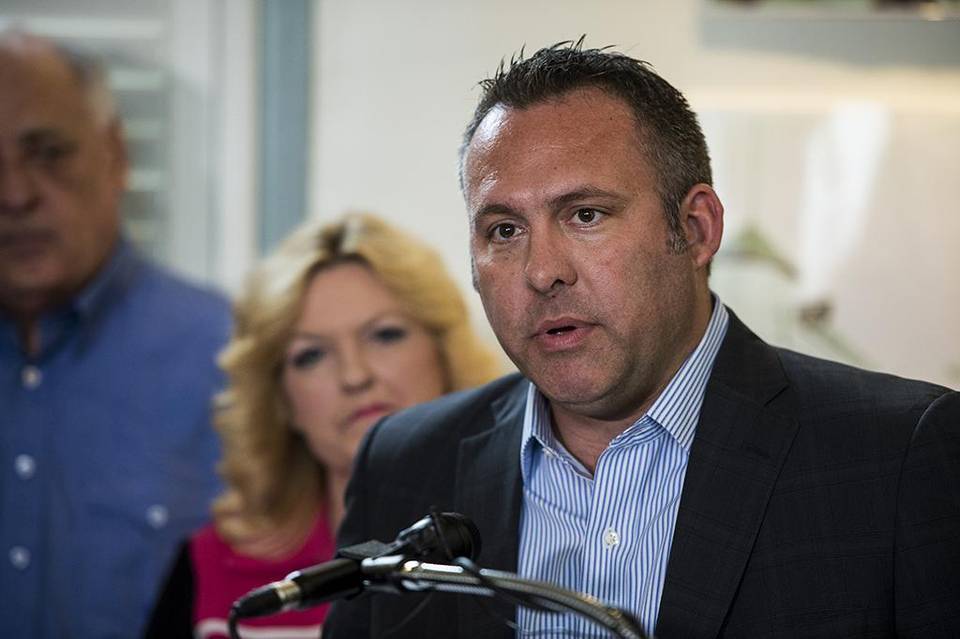Tax Deductions on Gambling Losses Under Threat in California, Tribal Casinos Expected to Fight Back
Posted on: June 11, 2019, 05:20h.
Last updated on: June 11, 2019, 05:20h.
California State Assemblyman Adam Gray (D-Merced) wants to put an end to tax-deductible gambling losses.

Under current federal and state law, gamblers can claim deductions on gambling losses, provided these are itemized on tax returns and do not exceed the amount of income from gambling reported.
But Gray believes the law is a “sin subsidy for the rich,” mainly benefiting wealthy customers at California’s tribal casinos. He wants an estimated $300 million deducted by gamblers each year to be diverted into programs that ensure Californians have healthy drinking water.
Gray is sponsoring a bill called the Inland California Healthy Communities Act that would close what he describes as a “loophole” that “benefits fewer than 150,000 people, primarily millionaires and billionaires.”
If Congress wants to pay to subsidize gamblers that’s their business, but we have families in California who cannot safely drink the water in their homes or get in to see a doctor,” Gray explained.
Of course, the bill only covers state taxes paid by California residents. Federal gambling tax-reporting regulations, to which California currently conforms, would remain in place.
Bad Beat for Poker Players?
Gray does not explain in his news release announcing the bill why the existing tax regulations benefit only the rich, but it’s likely he’s referencing VIP players who are able to take advantage of luxury comps while breaking just above even at high-stakes games.
But many professional gamblers — especially poker players — maintain a modest income by grinding small margins at California’s casinos and card clubs, and their livelihoods would be jeopardized by the bill.
The right of those who strive to make a living through gambling to have equal tax status with salaried individuals or businesses has been hard-fought for by the likes of Poker Hall-of-Famer Billy Baxter, whose federal tax refund case of 1986 established that gambling winnings should be classified as “earned income.”
Tribes Will Block Bill
Meanwhile, the bill will face fierce opposition from California’s powerful Native American casinos — for whom it will be bad for business — and the lawmakers who represent them.
The state’s tribal operators have collectively contributed billions of dollars to the state’s general fund, as well as their host communities, which affords them a great deal political power, as Gray knows only too well.
Gray has historically been a proponent of gambling expansion in California, spearheading recent efforts to legalize online poker and sports betting, and negotiating with the tribes as future stakeholders.
But the tribes have wilfully delayed the process to legalize these markets, mainly because they fear their hard-fought exclusivity on casino gaming will be eroded by commercial interests.
“Although seemingly popular, elimination of this deduction will have consequences –primarily on tribal governments – which we have not had the opportunity to adequately analyze given the absence of any meaningful consultation with Indian tribes,” California’s Tribal Alliance of Sovereign Indian Nations said in a statement to The San Diego Metropolitan.
Related News Articles
Most Popular
FTC: Casino Resort Fees Must Be Included in Upfront Hotel Rates
Genovese Capo Sentenced for Illegal Gambling on Long Island
NBA Referees Expose Sports Betting Abuse Following Steve Kerr Meltdown
UPDATE: Former Resorts World & MGM Grand Prez Loses Gaming License
Most Commented
-
UPDATE: Whiskey Pete’s Casino Near Las Vegas Closes
— December 20, 2024 — 30 Comments -
Caesars Virginia in Danville Now Accepting Hotel Room Reservations
— November 27, 2024 — 9 Comments -
UPDATE: Former Resorts World & MGM Grand Prez Loses Gaming License
— December 19, 2024 — 8 Comments -
FTC: Casino Resort Fees Must Be Included in Upfront Hotel Rates
— December 17, 2024 — 7 Comments
















Last Comment ( 1 )
I just saw this and his perception is absolutely incorrect. I am nothing close to a millionaire. I do lose a lot of money gambling or spend a lot of money gambling and occasionally I win some. Over the period of a year I have never won more than I have lost by a long shot. I understand that I can't deduct the $20,000 or so that I lose every year but if I end up winning $2,000 or $4,000, I shouldn't have to pay taxes on that amount since it's less than I lost.